Canoo reveals multi-purpose delivery vehicle MPDV
Californian startup Canoo has just held a preview of an all-electric multi-purpose delivery (MPDV) vehicle based on the company’s platform, which should cost around 33,000 US dollars (net, around 27,000 euros). The van can already be pre-ordered for a refundable deposit of 100 US dollars.
The highly-versitile electric delivery van will initially be offered in two size variants, with more to follow. The first examples should be available in 2022. Production scaling and the market launch are planned for 2023.
As an integral part of Canoo’s business strategy, the functional design of the multi-purpose delivery vehicle is designed to serve a wide range of customers. At launch, the electric delivery vehicle will be offered in two size variants, with more to follow. The company says that the vehicle was designed to be affordable for small business and was co-developed with feedback from street vendors and delivery business to optimise the functionality of the vehicle. Larger companies have the option to work with the startup to create a custom vehicle.
The Multi-Purpose Delivery Vehicle (MPDV) is based on the company’s platform that was co-developed with Hyundai. The US American electric vehicle startup and the South Korean automotive giant teamed up to co-develop the electric vehicle platform based on Canoo’s skateboard technology.
“We created our multi-purpose delivery vehicle from the inside out, with the ergonomics of the driver in mind and with attention to detail to help them be happier and more productive at work,” said Tony Aquila, Executive Chairman, Canoo. “The vehicle is affordable and offers greater cargo capacity than the current electric delivery offerings in its class. We aim to lower the total cost of ownership and increase return on investment for everyone from local small business owners to large fleets.”
The smallest variant, MPDV1, is 4.39 meters long, 1.95 meters wide and 1.89 meters high. (14.4 feet, 6.4 feet, 6.2 feet) with a wheelbase measuring 2.87 meters (9.4 feet). The vehicle is powered by a 147 kW electric motor. A total of three liquid-cooled battery sizes are available at 40, 60 and 80 kWh. Canoo estimates WLTP ranges of around 274, 402 and 483 kilometres respectively (170, 250 and 300 miles).
The cargo volume (from the back of the partition) is given as 5.66 cubic meters (230 cubic feet). Added to this is around 0.85 cubic meters (30 cubic feet) in the cabin. The cabin allows for storage room for a number of different items, depending on the purpose of the vehicle. In terms of payload, the startup gives capacities of around 898 kg (1760 pounds) with the small battery, around 798 kg (1760 pounds) with the medium battery and still 699 kg (1540 pounds) with the large battery.
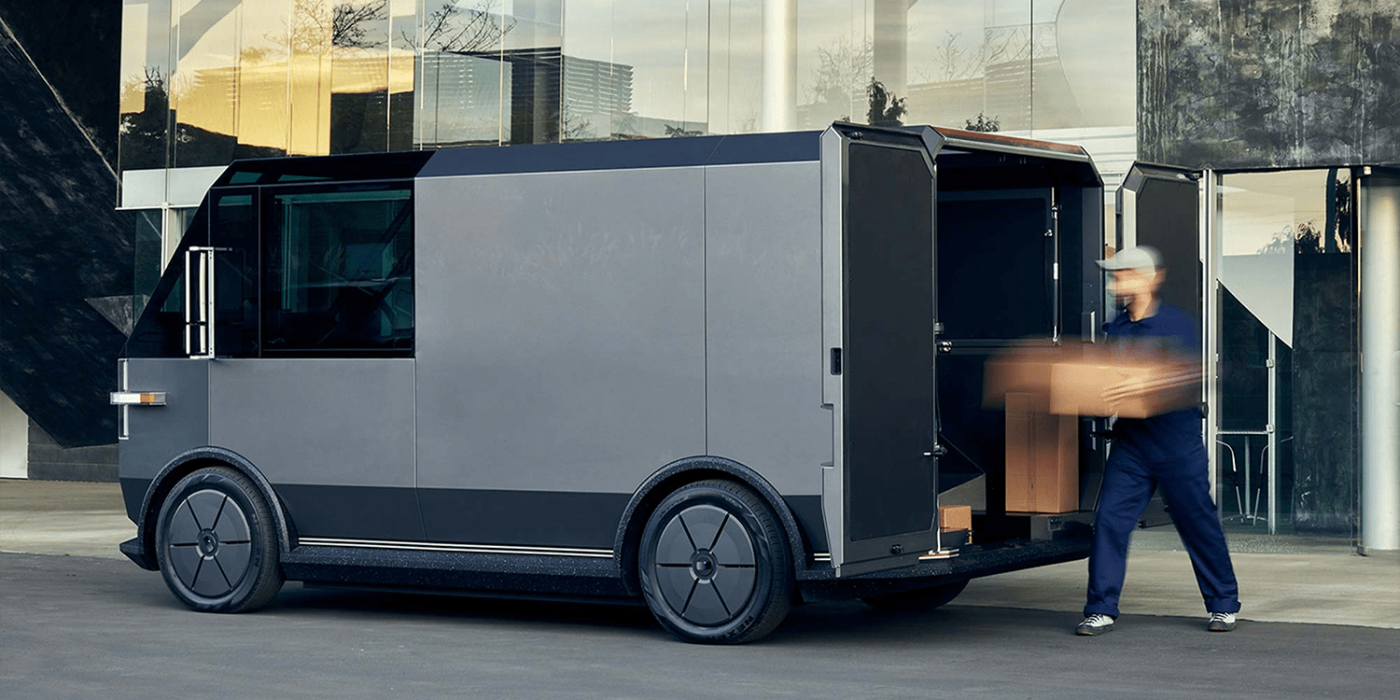
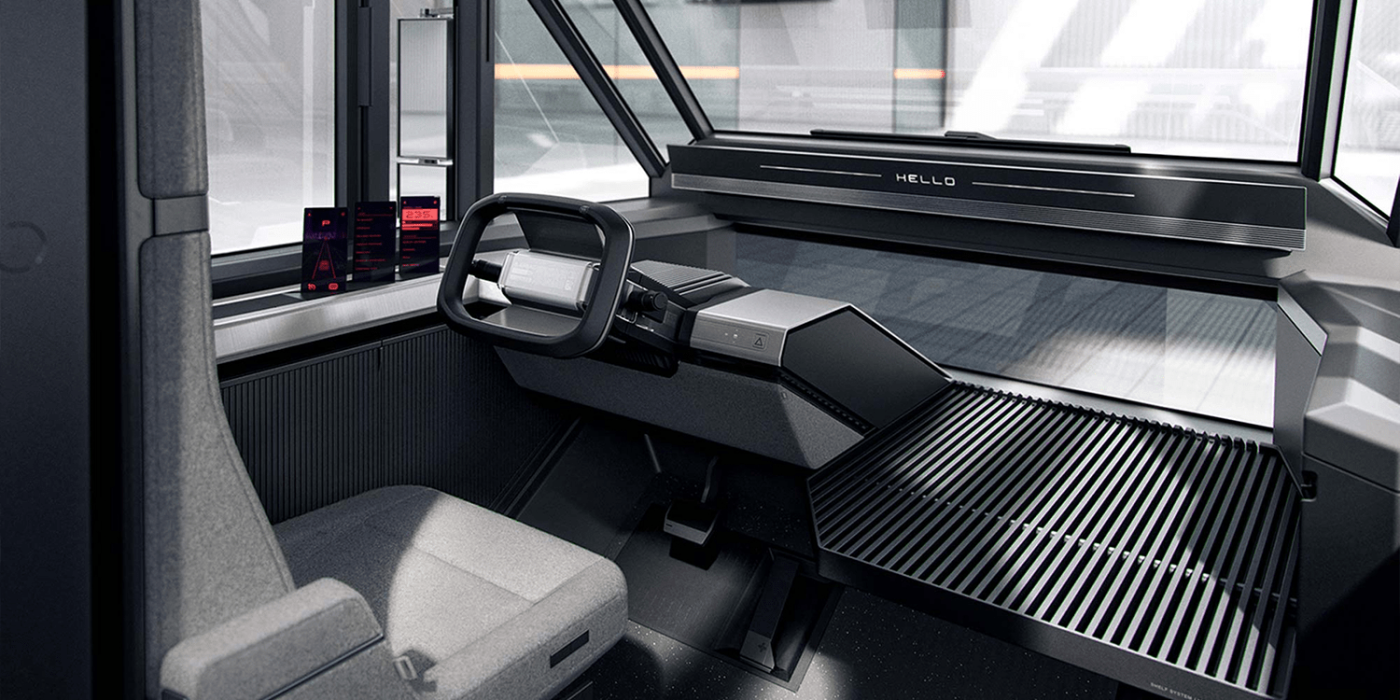

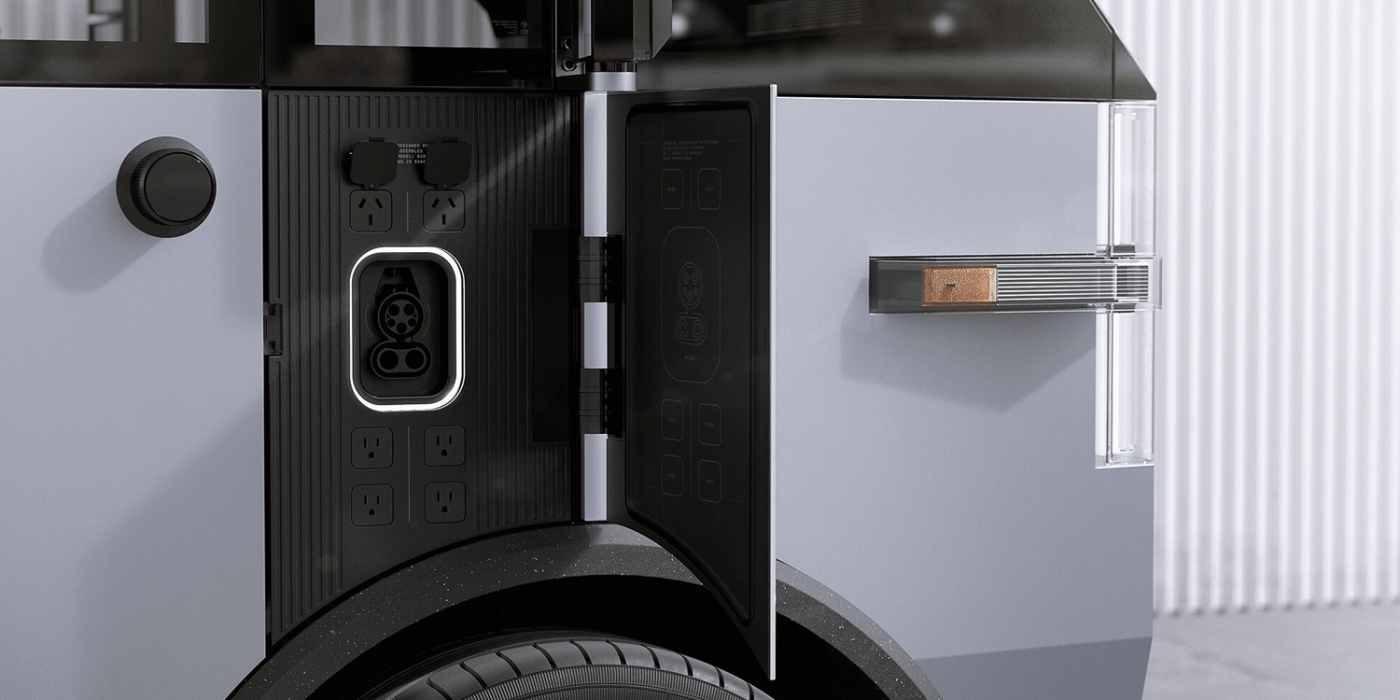
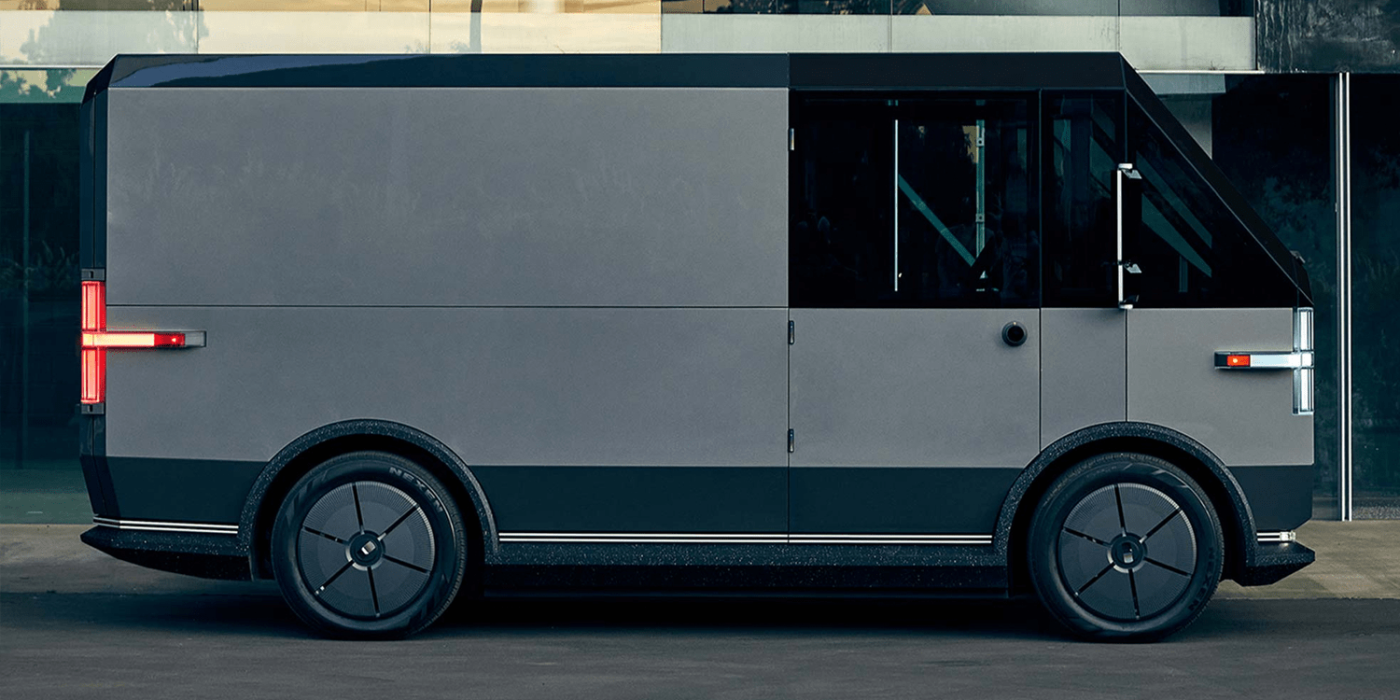
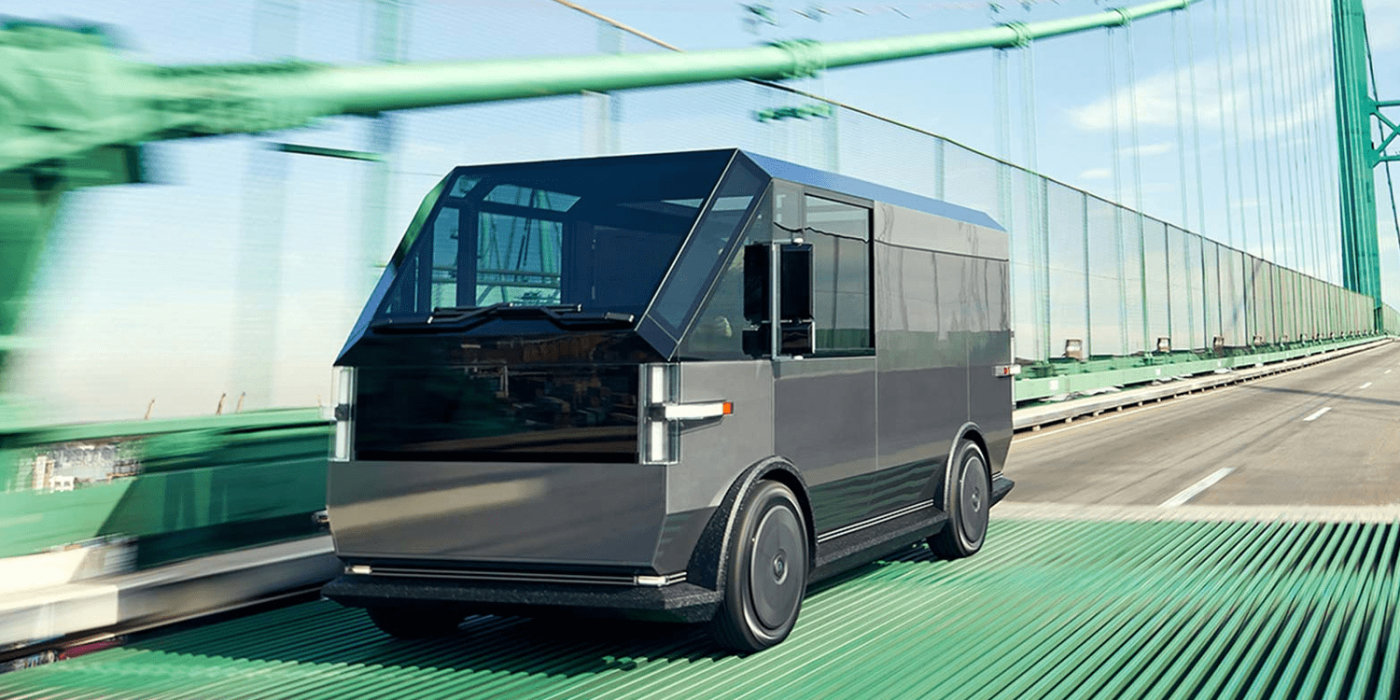
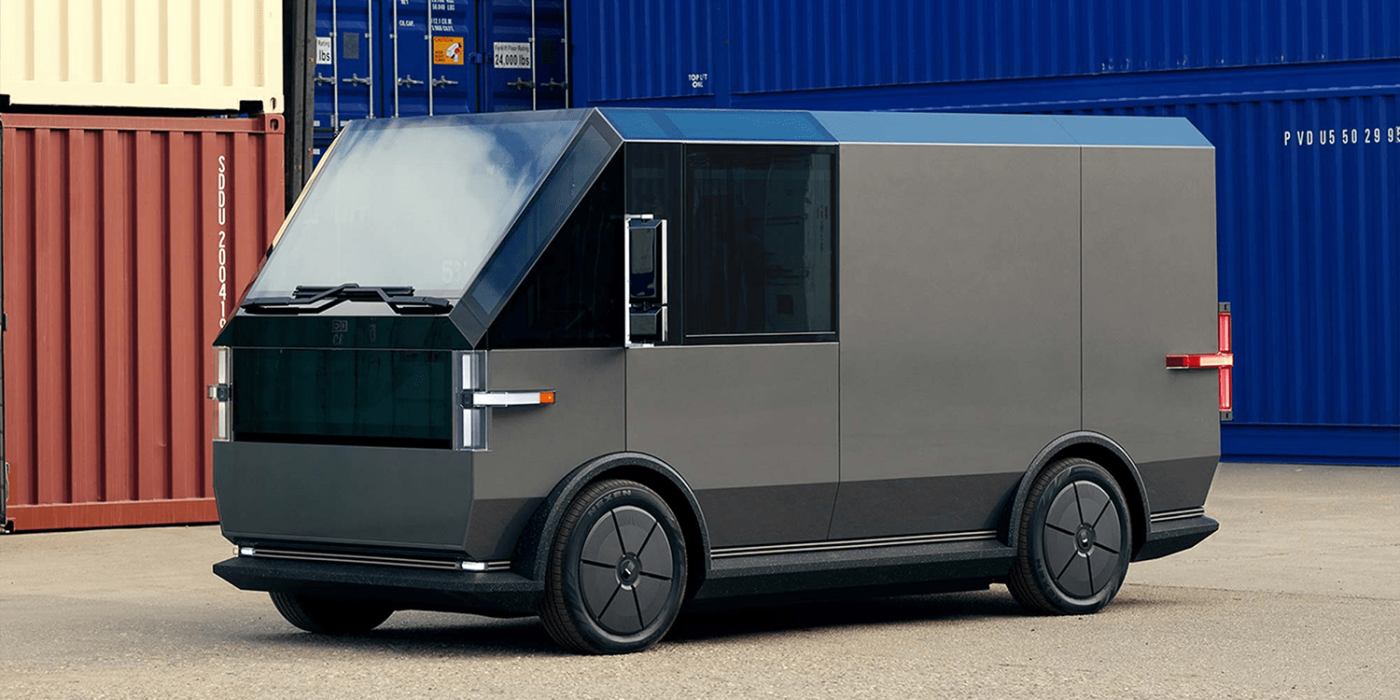
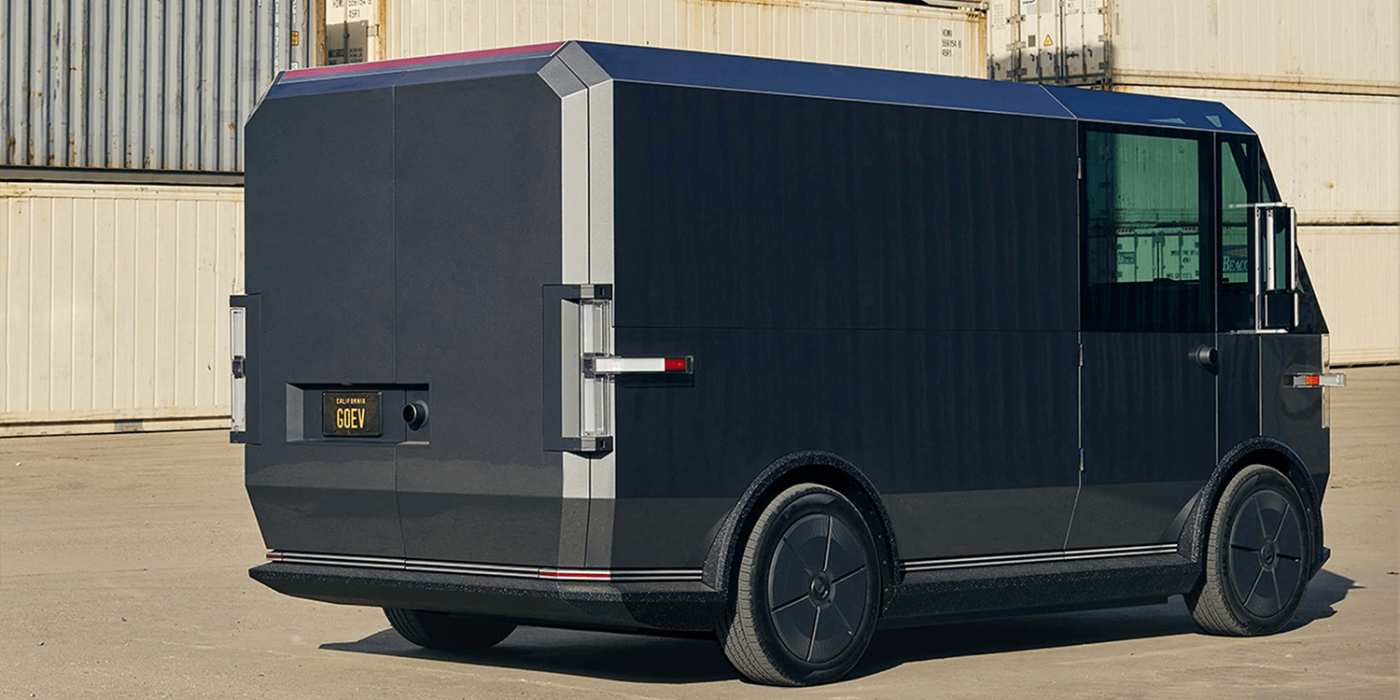
The MPDV2 medium variant comes in at 5.21 meters long, 2.19 meters wide and 2.56 meters high. The wheelbase is given as 2.87 meters. This version is also powered by a 147 kW electric motor. A total of three battery sizes are also available for the MPDV2. As estimated WLTP ranges, the startup gives around 177 km for the small battery with 40 kWh, around 306 km for the medium battery with 60 kWh and still around 402 km for the large battery with 80 kWh (respectively 110, 190 and 250 miles according to WTLP).
The cargo volume (from the back of the partition) is given as 12.74 cubic meters. Added to this is around 1.42 cubic meters in the cabin. The payload is 798 kg for the small battery, 699 kg for the medium battery and still 599 kg for the large battery.
Pictures clearly show a CCS port and will therefore be capable of DC charging. It will also be possible to connect electrical devices such as laptops, drills or saws, for which the vehicle will be equipped with an AC connection.
Following the introduction of the MPDV1 and MPDV2, Canoo is preparing to launch a third, larger variant, which will be in the Class 3 truck category.
Initially, the vehicle will be available for reservation in the United States. After its US debut, Canoo plans to try to launch the multi-purpose delivery vehicle in other markets such as Canada, Mexico and Europe. Canoo plans to announce a service network “at a later date”.
In August 2020, Canoo officially announced its IPO. The company has entered into a definitive agreement with the investment firm Hennessy Capital Acquisition to merge for the purpose of an IPO.

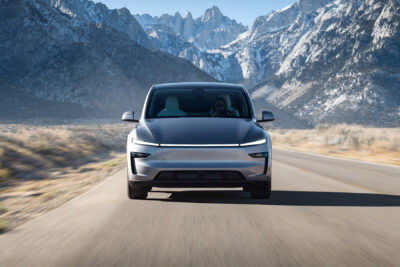


1 Comment